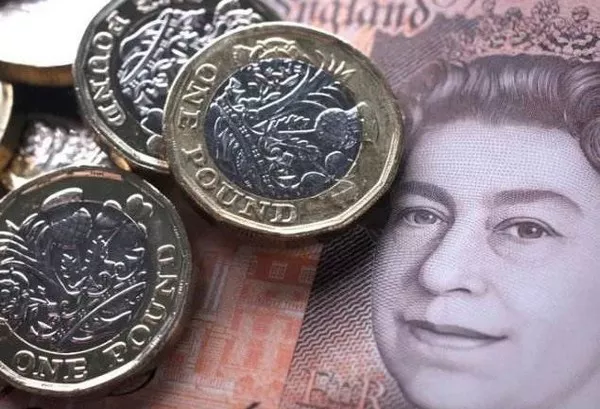GBP, or Great British Pound, is the official currency of the United Kingdom. It is also known as the pound sterling or simply the pound. In this article, we will explore the history and different aspects of the pound as a currency.
History of the Pound
The pound has a rich history dating back to the Anglo-Saxon period in England when silver pennies were used as currency. The term “pound” came from the Latin word “pondus,” which means weight. The pound was originally introduced as a unit of weight but evolved into a unit of currency over time.
In the late 17th century, the pound became the official currency of England, Scotland, and Wales. It was based on a gold standard until World War I, when it was changed to a floating exchange rate system.
Since then, the pound has been subject to various fluctuations in value due to changing economic and political conditions. Its role as a global reserve currency has also changed over time, with the rise of the US dollar and the Euro competing for dominance.
Denominations of the Pound
Today, the pound is divided into 100 pence. The coins have denominations of 1, 2, 5, 10, 20, and 50 pence, as well as £1 and £2 coins. The banknotes have denominations of £5, £10, £20, and £50.
The Bank of England is responsible for issuing and regulating the supply of notes and coins in circulation. The design and security features of the pound notes have undergone several changes over the years to help prevent counterfeiting.
Value of the Pound
The value of the pound can fluctuate significantly depending on various factors such as economic growth, inflation rates, interest rates, and geopolitical events. For example, uncertainty around Brexit negotiations has led to significant fluctuations in the value of the pound in recent years.
As of June 2023, one pound is equal to approximately 1.38 US dollars or 1.17 Euros. This exchange rate can vary daily based on market conditions and other factors.
Global Role of the Pound
The pound has played a significant role in global finance and trade for many years. It was once considered the world’s leading reserve currency, along with the US dollar. However, this status has declined in recent decades due to the rise of the Euro as a major currency and the increasing use of digital currencies.
Despite this, the pound remains an important currency in international trade, particularly in Europe and the Commonwealth countries. It is also used as a reference currency in many commodity markets, such as oil and gold.
Impact of Brexit on the Pound
Brexit, the UK’s exit from the European Union, has had a significant impact on the pound’s value since the referendum vote in 2016. The uncertainty surrounding Brexit negotiations and the potential economic impact of leaving the EU led to significant fluctuations in the pound’s value.
After the UK formally left the EU in January 2020, the pound continued to be affected by ongoing negotiations around trade agreements and other issues related to the separation. The COVID-19 pandemic also had a significant impact on the pound’s value, with lockdowns and economic slowdowns affecting the UK economy and currency.
As of June 2023, the pound’s value continues to be influenced by ongoing Brexit negotiations and other geopolitical events, as well as economic factors such as inflation rates and interest rates.
Conclusion
In conclusion, the pound is the official currency of the United Kingdom and has a rich history dating back centuries. Its value can fluctuate significantly depending on various economic and political factors, and it remains an important currency in global finance and trade.
Brexit and other geopolitical events have had a significant impact on the pound’s value in recent years, and its future remains uncertain as negotiations around trade agreements and other issues continue. Regardless of these changes, the pound remains an important currency in international finance and trade, and it will likely continue to play a significant role in the global economy for years to come.


